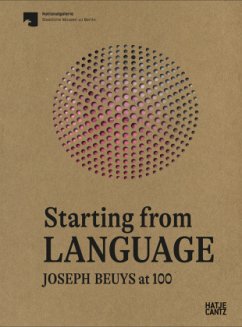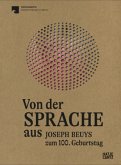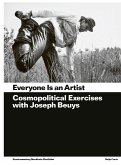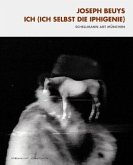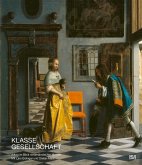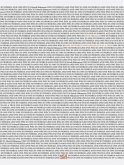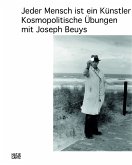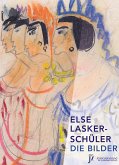In a 1985 series of "Lectures on one's own country: Germany", given at the Munich Kammerspiele, Joseph Beuys said that he developed his work "from language." He regarded language as equal to visual art-a flexible material through which every individual could physically, intellectually, and communicatively participate in the process of re-ordering society. His exploration of language ranges from silence to hours of debate, from animal sounds to precise discussions of concepts and puzzling writings. Accordingly, the chapters are divided into the themes of "silence," "sounds," "concepts," "writing," "mystery," "legends," and "speech." Both exhibition and catalogue assemble sculptures, drawings, installations, films, posters, and documents from the Nationalgalerie, the Sammlung Marx, the Kupferstichkabinett, and the Art Library of the Staatliche Museen zu Berlin.
JOSEPH BEUYS (1921-1986) was a draftsman, sculptor, action and installation artist, a teacher, a politician, and an activist, as well as one of the twentieth century's most important artists. Dealing with questions of humanism, social philosophy, anthropology, his universally applied work remains influential to this day.
JOSEPH BEUYS (1921-1986) was a draftsman, sculptor, action and installation artist, a teacher, a politician, and an activist, as well as one of the twentieth century's most important artists. Dealing with questions of humanism, social philosophy, anthropology, his universally applied work remains influential to this day.

